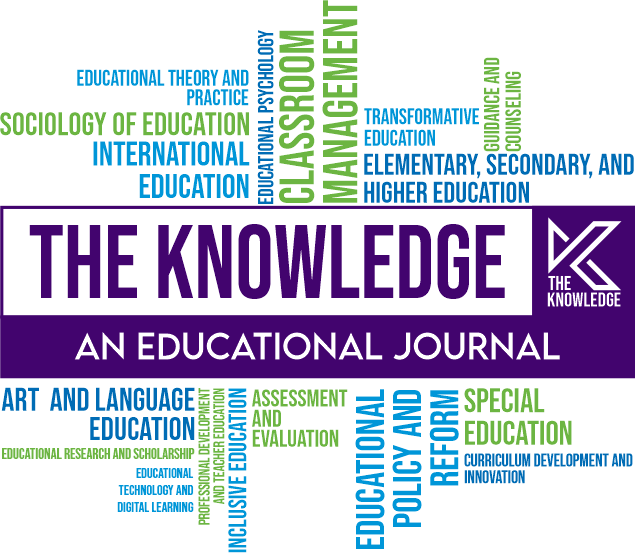Analysis of Madrasa Education in Pakistan through the Lens of Media
DOI:
https://doi.org/10.63062/tk/2k22a.12301Keywords:
Media, Pakistan, Madrasa Education, Social, ChallengesAbstract
This paper explores the media's depiction of Madrasa education in Pakistan. Madras education is confronted with significant challenges in the modern world as it grapples with the persistent issues of radicalism and terrorism. This paper explores the challenges that Pakistan has faced since the 9/11 incident, including economic, religious, social, and political crises. These challenges have created a complex situation for the citizens of Pakistan. In the modern arena, Madaras are often associated with the production of Taliban, terrorism, and radicalism. This paper adopts a qualitative approach, with the researcher utilizing the library method for data collection. The data has been gathered from a wide range of secondary and scholarly sources, such as books, articles, journals, and websites. The data was presented thoughtfully using thematic analysis. It reveals that Pakistan has experienced a continuous state of adversity and challenges since the 9/11 incident. These difficulties have had a detrimental impact on its socio-economic, cultural, religious, political, and developmental aspects.
References
AHMED, M. D. (1987). MUSLIM EDUCATION PRIOR TO THE ESTABLISHMENT OF MADRASAH. Islamic Studies, 26(4), 321–349. http://www.jstor.org/stable/20839857
Andrabi, T., Das, J., Khwaja, A., & Zajonc, T. (2006). Religious school enrollment in Pakistan: A look at the data. Comparative Education Review, 50(3), 446–477. https://doi.org/10.1086/503885
Bassiouni, M. C. (2012, January 22). Introduction to Islam: An online text. Middle East Institute. https://www.mei.edu/bassiouni/intro-to-islam
Bhattacharya, S. (2014). Madrasa education in Pakistan: in the context of Government policy. Global Education Magazine, 9, 2. https://dialnet.unirioja.es/servlet/articulo?codigo=7345473
Ghani, F., Ghani, B. (2021). Madrassa education system and political socialization in Pakistan. Iḥyāʾalʿulūm - Journal of Department of Quran o Sunnah, 21(1). https://doi.org/10.46568/ihya.v21i1.85
Helfstein, S. (2009). The Combating Terrorism Center at West Point: Radical Islamic Ideology in Southeast Asia. https://doi.org/10.21236/ada502410
Hummel, K. (2021). Extremism and terrorism trends in Pakistan: Changing dynamics and new challenges – Combating terrorism center at West Point. Combating Terrorism Center at West Point. https://ctc.westpoint.edu/extremism-and-terrorism-trends-in-pakistan-changing-dynamics-and-new-challenges/
Jalal, S. U., Khan, B., & Ullah, M. U. (2021). Peeking into Afghan's history: A study from 1988 to 2010. Global Political Review, VI(I), 179-191. https://doi.org/10.31703/gpr.2021(vi-i).17
Khan, N. (2018, October 13). Pakistani scholars question PM Khan’s plans to reform madrassas. Arab News PK.
Naveed, A., Hussain, A. R., & Salīm, A. (2011). Connecting the Dots: Education and religious discrimination in Pakistan: A study of public schools and madrasahs. United States Commission on International Religious Freedom. https://researchportal.bath.ac.uk/en/publications/connecting-the-dots-education-and-religious-discrimination-in-pak
Siddiqa, A. (2009). JIHADISM IN PAKISTAN: THE EXPANDING FRONTIER. Journal of International Affairs, 63(1), 57–71. http://www.jstor.org/stable/24384172
Sözeri, S., Altinyelken, H. K., & Volman, M. (2017). Mapping discourses on mosque education in the Netherlands: a content analysis of the Dutch press, 2010–2016. Discourse: Studies in the Cultural Politics of Education, 40(3), 358–371. https://doi.org/10.1080/01596306.2017.1316705
Weinbaum, M. G., & Khurram, A. B. (2014). Pakistan and Saudi Arabia: Deference, Dependence, and Deterrence. Middle East Journal, 68(2), 211–228. http://www.jstor.org/stable/43698156




